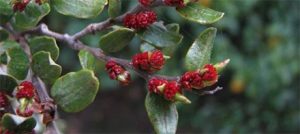Climate change is negatively affecting tree reproduction by throwing seed production systems out of synchronisation, according to a new international study co-authored by a New Zealand University of Canterbury scientist. Source: Timberbiz
Many tree species worldwide produce large seed crops at irregular intervals, known as mast seeding. New Zealanders are probably already aware of this because in three of the last six years (2014, 2016 and 2019) the Department of Conservation has had to run extensive pest control operations over very large areas, says University of Canterbury Professor Dave Kelly, School of Biological Sciences, a co-author on the study.
The pest control was required to protect rare native birds from booming populations of two key predators, rodents and stoats, which increased after big seed crops in southern beech (Nothofagus) forests.
A key unanswered question is how climate change will affect the frequency of big seed years, and what the consequences will be for animals that feed on these seeds. The new international study published in the journal Nature Plants has used 39 years of data on European beech (Fagus) trees throughout Britain.
“At the start of the study, the beech trees gained major benefits from irregular big seed crops,” Professor Kelly said.
“Pollination worked better, and losses to seed predators – a native moth – were kept low because the moth had little to eat in the famine years between big seed crops. Benefits like this are the evolutionary reasons that trees show mast seeding in the first place.”
But over the decades of the study, seed production by the beech trees steadily increased due to the warming climate. That should have been good news for the plant, but instead turned out to only be good for the seed-eating moth.
The net effect was that complex interactions between species nullified any benefit to forests.
Professor Kelly says there are important lessons for New Zealand, and many other countries which have mast seeding trees.
“We need to understand not only how the plants and the animals respond to warmer climates, but also how they interact. For example, ship rats in New Zealand have been spreading to higher altitudes in recent decades, which will alter local responses to southern beech mast seed crops. Overall, seeding strategies which worked well for forest trees in the past may increasingly fail under new climate conditions,” he said.
The new research, which also involved researchers at Keele University and Manchester Metropolitan University, will be published in the journal Nature Plants. The paper titled, ‘Climate warming disrupts mast seeding and its fitness benefits in European beech’ can be read at www.nature.com/articles/s41477-020-0592-8 (DOI: 10.1038/s41477-020-0592-8).






